Who is she really? Glamorous ‘scientist’ who ‘supplied spy agency Mossad with pagers to bomb Lebanon was part of an Israeli front’ and despite claiming to study in Britain, LSE says it NEVER gave her a degree
The mystery surrounding how the Mossad obtained the pagers used to bomb Lebanon, killing nearly 40 people and wounding thousands in two days, has deepened after a British university revealed it never taught the woman who provided the intelligence agency with information.
For two days, explosives embedded in pagers and walkie-talkies have been detonated across Lebanon in a massive move likely carried out by Israel’s shadowy intelligence agency, Mossad, which is believed to have set up companies across Europe to make and sell the old-fashioned radio gadgets. Mossad redesigned them to hold lethal doses of PETN explosives and have a miniature detonator.
The Hungarian company BAC Consulting, which was said to have supplied the pagers, was in fact part of an Israeli front, according to three intelligence officers interviewed by the New York Times. The company was run by the glamorous “scientist” Cristiana Barsony-Arcidiacono, who boasted of speaking seven languages and having a political education from the London School of Economics (LSE) and a PhD in physics from University College London.
However, LSE said it had not awarded her any degrees in politics in the years in question. And neither UCL nor the School of Oriental and African Studies could confirm her claims that she had studied there.
American journalists who reached Barsony-Arcidiacono by telephone earlier this week said she denied knowledge of the plot, saying: “I don’t make the beepers. I’m just the middleman.”
The company was run by the glamorous ‘scientist’ Cristiana Barsony-Arcidiacono, who boasted that she spoke seven languages and had a political education at the London School of Economics.

For two days, explosives embedded in pagers and walkie-talkies have been detonated across Lebanon
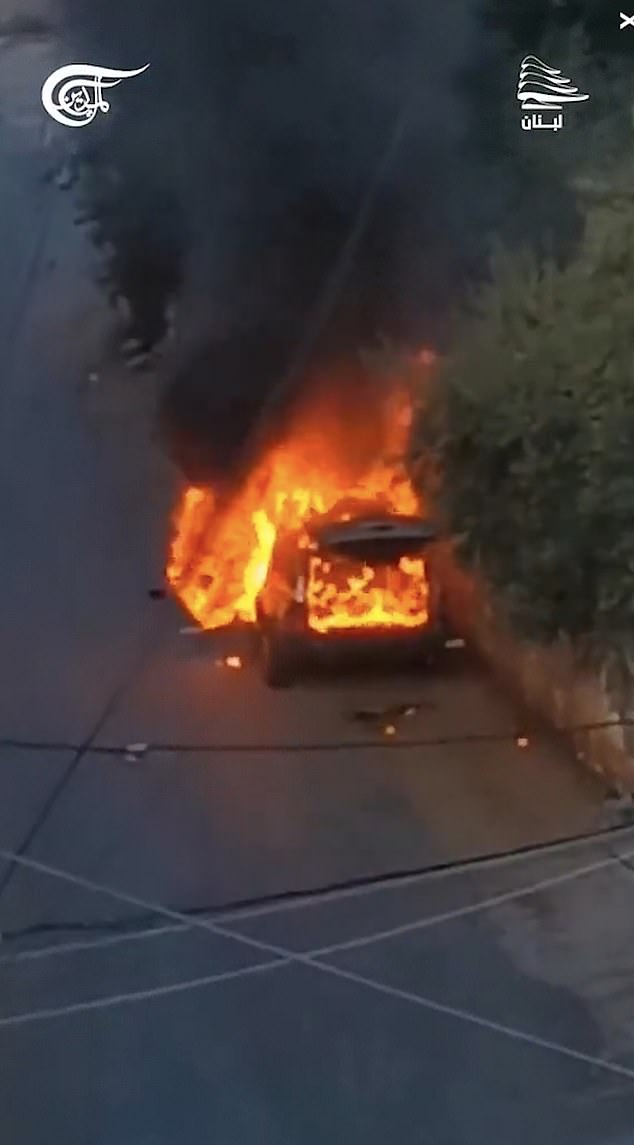
The explosions have greatly increased already high tensions between Israel, Hezbollah and the terror group’s allies
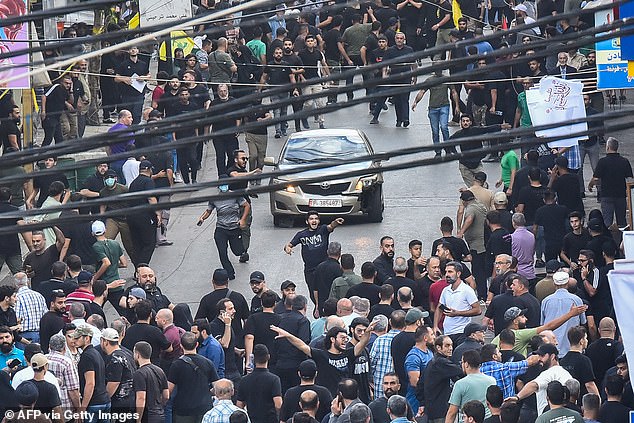
People react around a car after an explosion was reported during the funeral of those killed when hundreds of pagers exploded the day before in the southern suburbs of Beirut, Lebanon on September 18, 2024
BAC’s website, now offline, was filled with photos of landscapes, business jargon, meaningless buzzwords and “uplifting” quotes from Einstein and Leonardo da Vinci. Its headquarters was an empty apartment in Budapest.
John Bayliss, a former GCHQ official, suspected that Israel had discovered that the company that had taken the order from Hezbollah wanted to outsource production to Europe. According to him, Israel seized the opportunity to set up a “dummy company” to fulfill the order, thus undercutting the competition.
At least two other shell companies were set up, one of which was in Sofia, Bulgaria, headed by a Norwegian businessman.
Their role was to mask the real identities of the people who made the devices from Israeli intelligence. Mossad was already hatching the plan long before Iranian-backed Hezbollah leader Hassan Nasrallah decided that cell phones were too easy to trace and ordered them replaced with pagers and walkie-talkies. If Israel went high-tech, Hezbollah would go low-tech. “You ask me, where is the agent?” Nasrallah told his followers.
“I’m telling you that the phone in your hands, in your wife’s hands, in your children’s hands is the agent. Bury him. Put him in an iron box and lock it.”
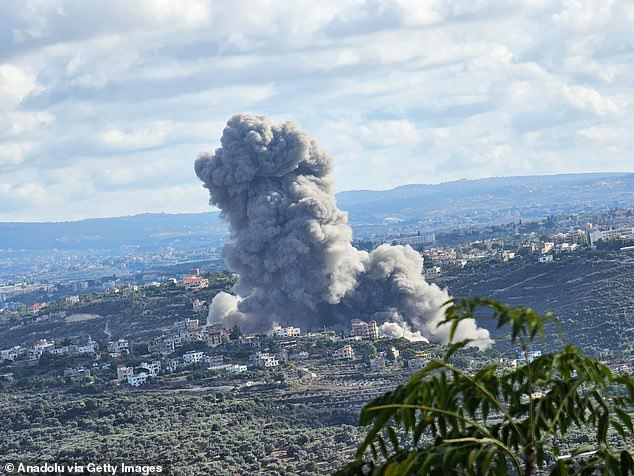
Smoke rises after an Israeli airstrike hit Tyre in southern Lebanon this afternoon
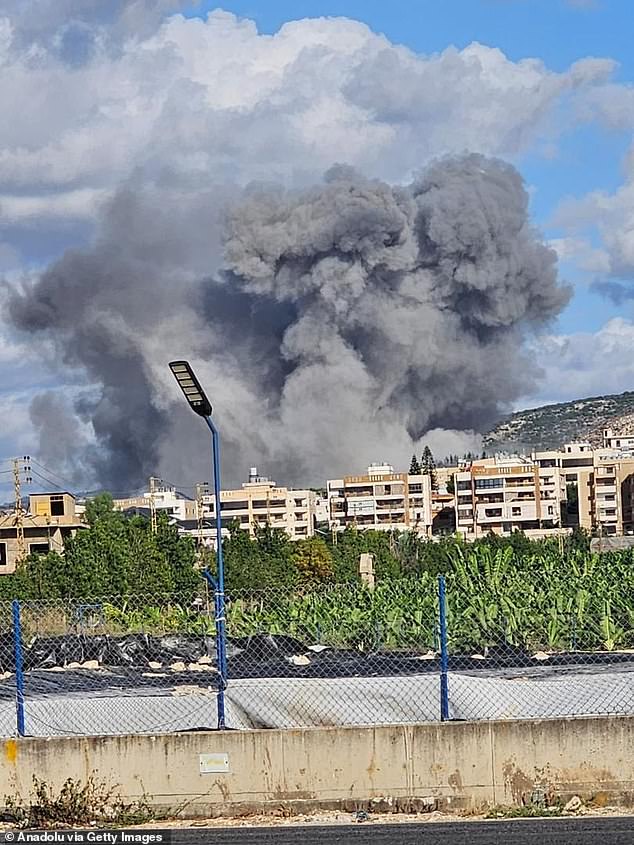
Smoke rises after Israeli airstrike hits Tyre in southern Lebanon
Following this speech in February, the Mossad reportedly rapidly ramped up production of bomb devices.
According to U.S. intelligence, deliveries of pagers to Lebanon increased during the summer, with thousands of pagers arriving in the country and distributed to Hezbollah officers and their allies.
Meanwhile, Icom, the Japanese manufacturer whose name appeared on exploded handheld radios, said the device had not been in production for a decade. Icom said it had not shipped IC-V82 radios since 2014.
The explosions have further escalated an already tense situation between Israel, Hezbollah and allies of the terror group.
Israeli warplanes carried out their heaviest strikes on southern Lebanon in nearly a year of war on Thursday night, escalating the conflict between Israel and the Lebanese armed group Hezbollah amid calls for restraint.
According to the Israeli military, during the recent operation on Thursday, the fighter jets spent more than two hours hitting hundreds of rocket launchers in southern Lebanon, which were to be immediately fired at Israel.
The bombardment included more than 52 strikes in southern Lebanon after 9:00 p.m. (18:00 GMT), Lebanon’s state news agency NNA reported. Three Lebanese security sources said it was the heaviest airstrikes since the conflict began in October.
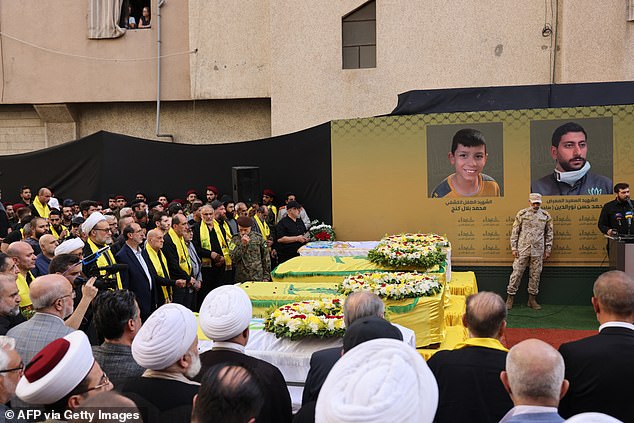
Photos showed crowds of people walking through the streets of Beirut mourning the boy, along with three other men who were killed.
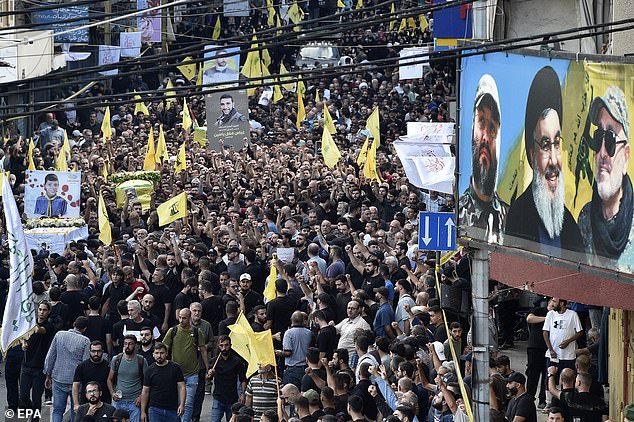
Their deaths, along with 10 others killed on Tuesday, came just a day before Israel carried out a second wireless attack, this time targeting Hezbollah radios.
There are no immediate reports of casualties.
The Israeli military vowed to continue attacking Hezbollah and said strikes on Thursday hit about 100 rocket launchers and other targets in southern Lebanon.
Hezbollah leader Hassan Nasrallah said in a televised address on Thursday that the explosions on Tuesday and Wednesday “crossed all limits.”
“The enemy has exceeded all controls, laws and norms,” he said, adding that the attacks “can be considered war crimes or a declaration of war.”
Ian is believed to have sent money to an Israeli pensioner in exchange for the assassination of Benjamin Netanyahu
It is alleged that Tehran wanted to hire 73-year-old Israeli businessman Moti Maman, who is said to have spent time in Turkey plotting to assassinate the Israeli prime minister.
Iran is believed to be behind a broader plot to assassinate several senior officials in Israel, following the July 31 killing of Hamas political leader Ismail Haniyeh, Israeli Defense Minister Yoav Gallant said on Wednesday.
Two Turkish men, Andrei Farouk Aslan and Guneid Aslan, were named as intermediaries who put Maman in touch with Iran.
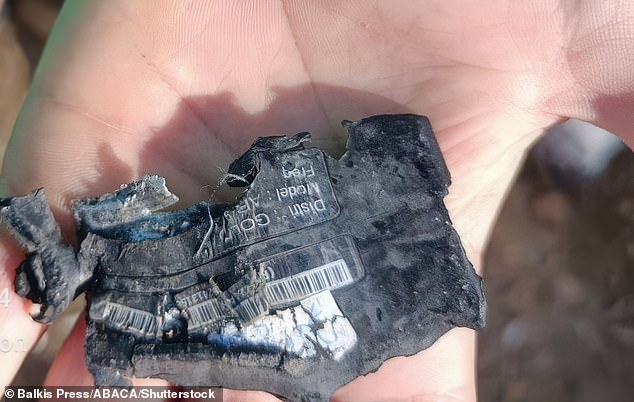
A hand shows the destroyed pager or pager that exploded on September 17

Israeli army evacuates wounded by helicopter after an anti-tank missile was fired from Lebanon into Israel, amid cross-border hostilities between Hezbollah and Israel, September 19, 2024

The attacks seriously injured dozens of Hezbollah members in southern Lebanon and in the capital Beirut.

Thousands were injured when communications equipment exploded in Lebanon and Syria on Tuesday and Wednesday
They are said to have met him in the city of Samandag in May to discuss the attack.
After an initial request for $1 million prior to any agreement, Maman was reportedly offered €5,000 (£4,200) to attend meetings and undergo training.
As part of his work, Maman was allegedly ordered to make videos of Israeli locations for surveillance and intelligence purposes. Iran also allegedly asked the businessman to try to recruit Russians and Americans capable of killing Iranian anti-regime figures.
Israel’s Shin Bet intelligence agency did not specify how far the suspect had gotten in his missions, stressing that foiling one plot did not solve the overall threat to Israel.
Last week, the agency revealed a plan by the militant group Hezbollah to assassinate a former senior defense official, later identified as former Israel Defense Forces Chief of Staff Moshe Ya’alon.
